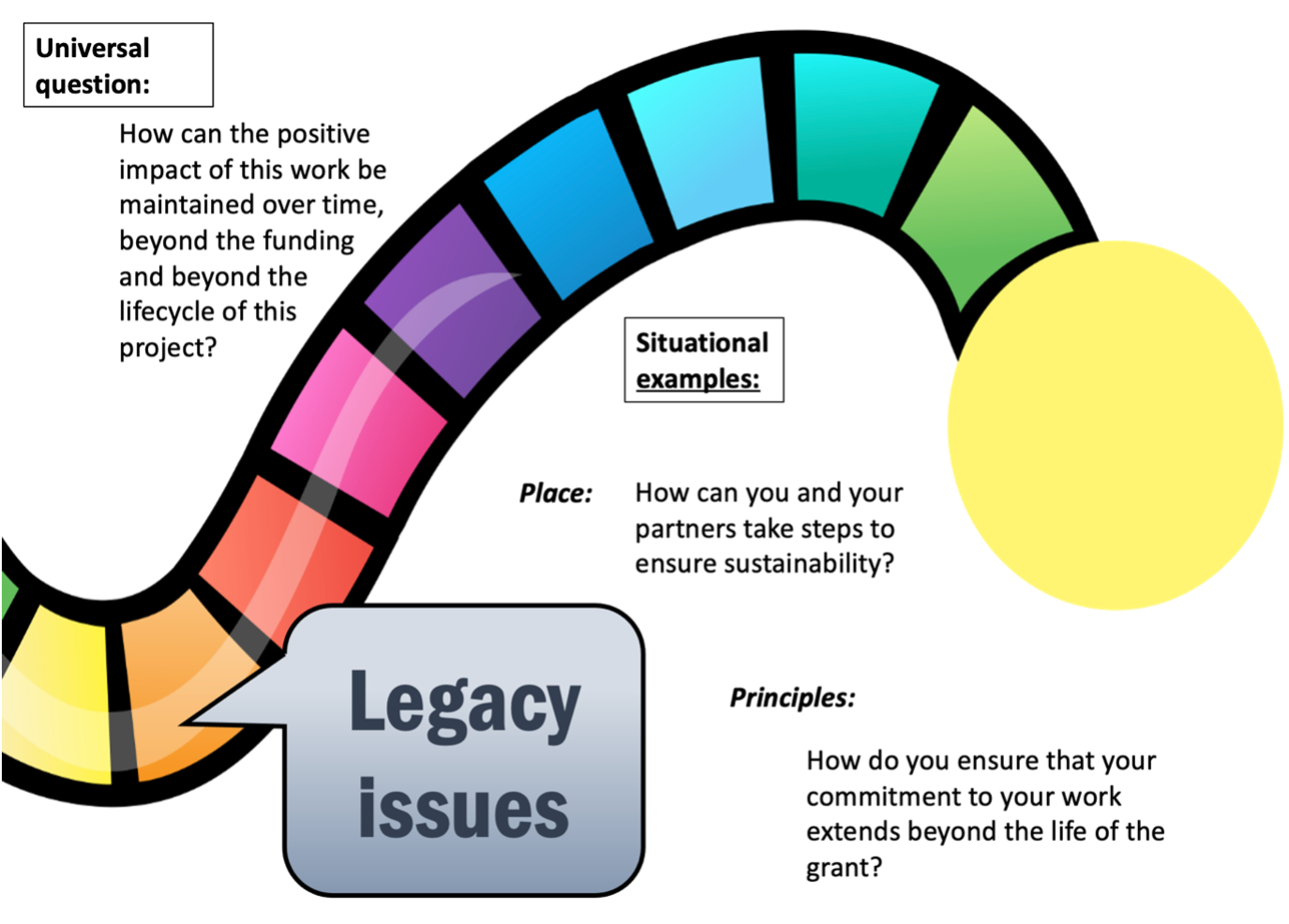|
Stage 12 LEGACY, IMPACT AND FUTURE-PROOFING
|
We always need to consider the long-term impact of any study – both as a result of the insights and knowledge exchange you’ve delivered, but importantly, also the legacy of how you delivered the work – during all phases of the project – including any unintended consequences. Every researcher will always be connected to and responsible for the research work they have done, including its intentional and unintentional translation. We must also have a mindset about contributing to the future learning of others and the ‘future-proofing’ of global research by sharing our mistakes and our innovative solutions. |
|||
|
|
||||
|
Being alert to ethical dilemmas |
||||
|
What are we doing to ensure positive impacts of our project are sustained and any potential negative impacts are mitigated?
|
Supporting considerations:
|
|||
|
Working towards solutions |
||||
|
Place |
People |
Principles |
Precedent |
|
|
Think together with your partners about the future and the impacts on different contexts – both positive and negative; and take steps to ensure sustainability.
|
Talk with your partners about what the legacy of this project has been for them and how they see this into the future. Encourage openness in this discussion and include both positive and negative aspects. Think together about their future careers and the impact of the research. This may include involvement in future projects or opportunities to highlight their involvement in the current project (e.g., through media etc). Make a plan to check in with your community partners in a few months (by person or survey or other relevant means) to find out what the legacy of this project has been for them and how they see this into the future. Encourage openness in this discussion and be interested in both positive and negative aspects. Make yourself available to all stakeholders into the future to discuss intentional and unintentional legacies and impacts of your work. |
Be open, honest and accountable. Know that your commitment to your work extends beyond the life of the grant. Make yourself available for ongoing discussions and enquiries about your work – not just what you set out to do but the way that you did it. |
Talk to your funders and governance bodies about the project in some depth – don’t simply submit a brief report and move on. Help create a positive precedent for future global challenges research. Debrief on the challenges and solutions. Reflect on creative possibilities for future projects, and also on improvements in funding and governance processes Write about your experience of doing this project (not just the findings) so that you can contribute to expertise available in the global academic village. |
|
Body
